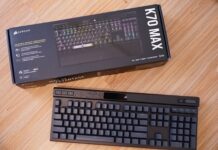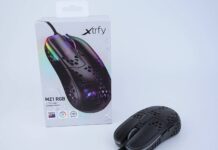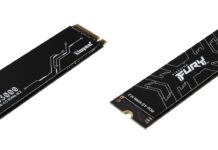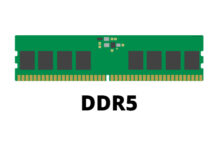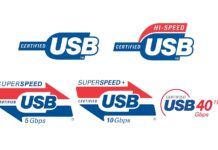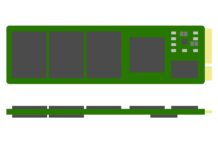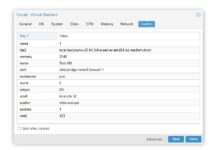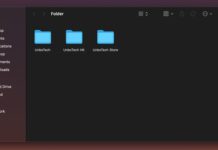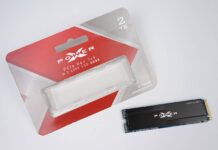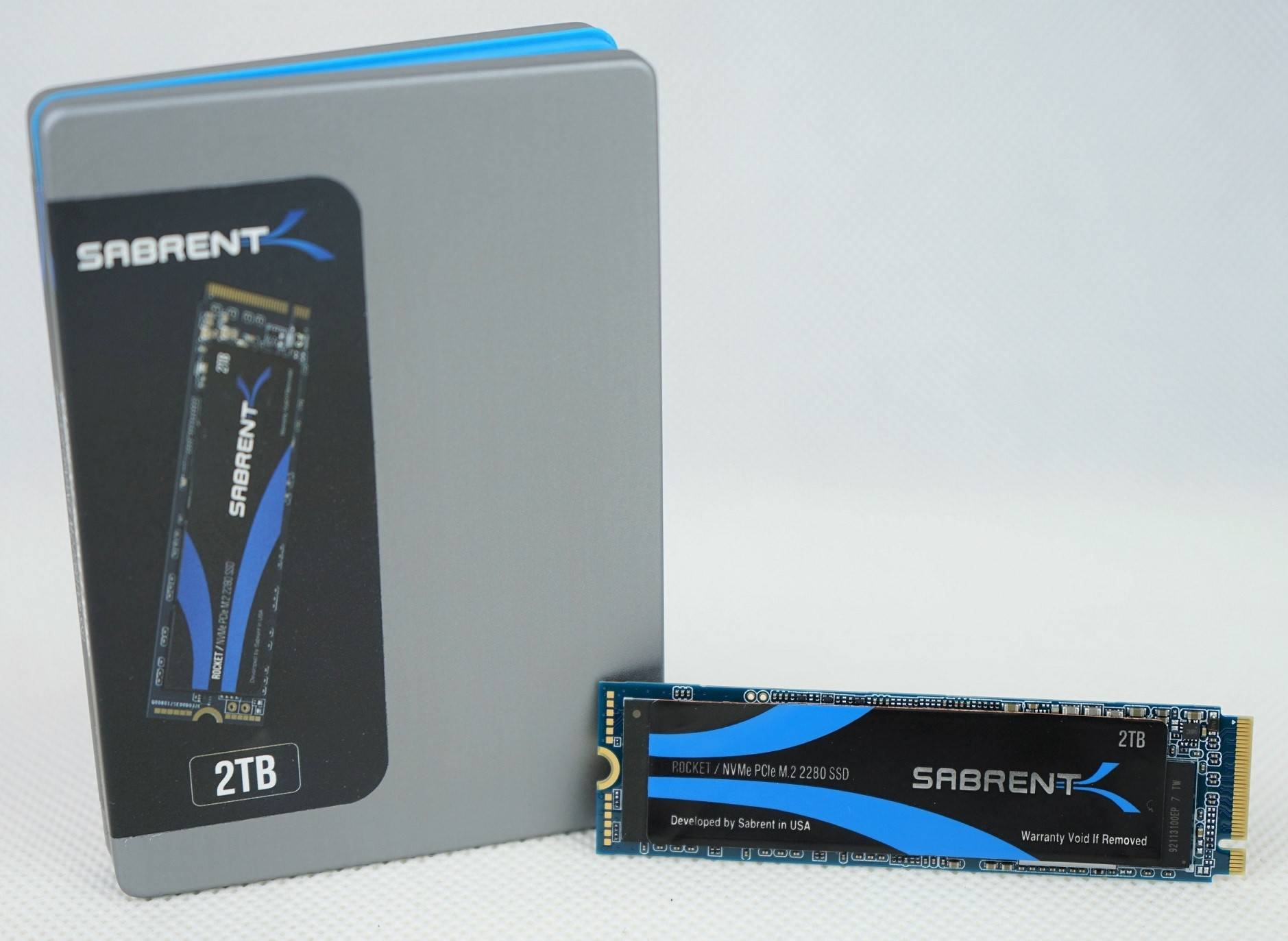
Sabrent is a rising name in the solid-state storage market with significant innovations in the past couple years. In this article, we are going to test their Rocket PCIe 3.0 NVMe SSD and see how it compares against offerings from well-established manufacturers.
Specifications
[table id=426 /]
The Rocket SSD can be purchased only in the M.2 2280 form factor with five capacity options, from 256 GB to 4 TB. With the PCIe 3.0×4 interface, it is promoted to reach sequential read/write speeds of up to 3450 MB/s and 3000 MB/s. Smaller-sized drives may have slightly inferior performance.
Sabrent does not disclose the SSD’s endurance numbers publicly on the official website, but we were able to find the information in its Newegg product page. They range from 380 TBW to 7300 TBW. All models have a rated MTBF of 1.8 million hours and a 5-year warranty.
Unboxing
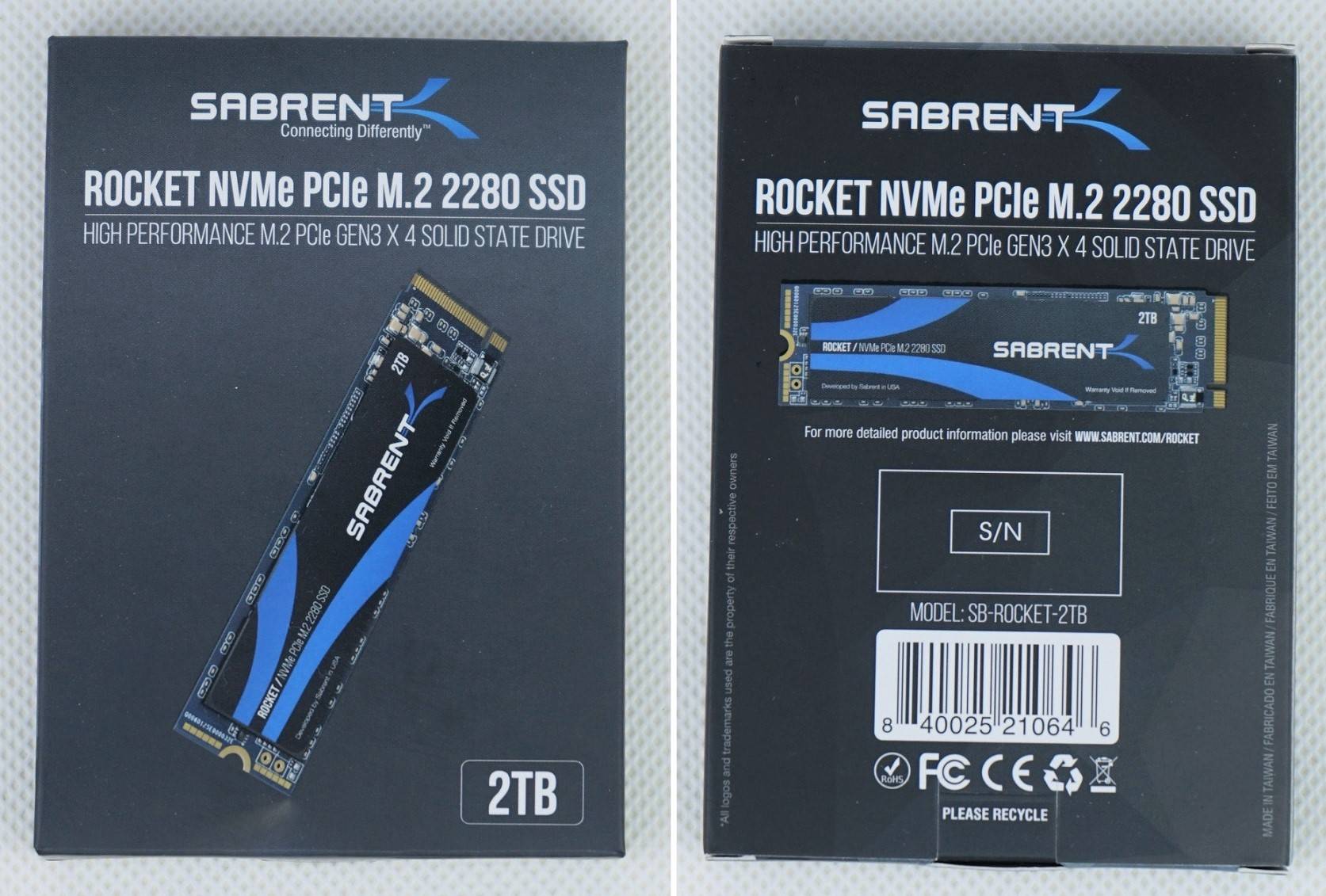
The Sabrent Rocket is shipped inside a very unique, small metal box. The outer cardboard box has a couple photos of the drive, its capacity, model name and UPC code.
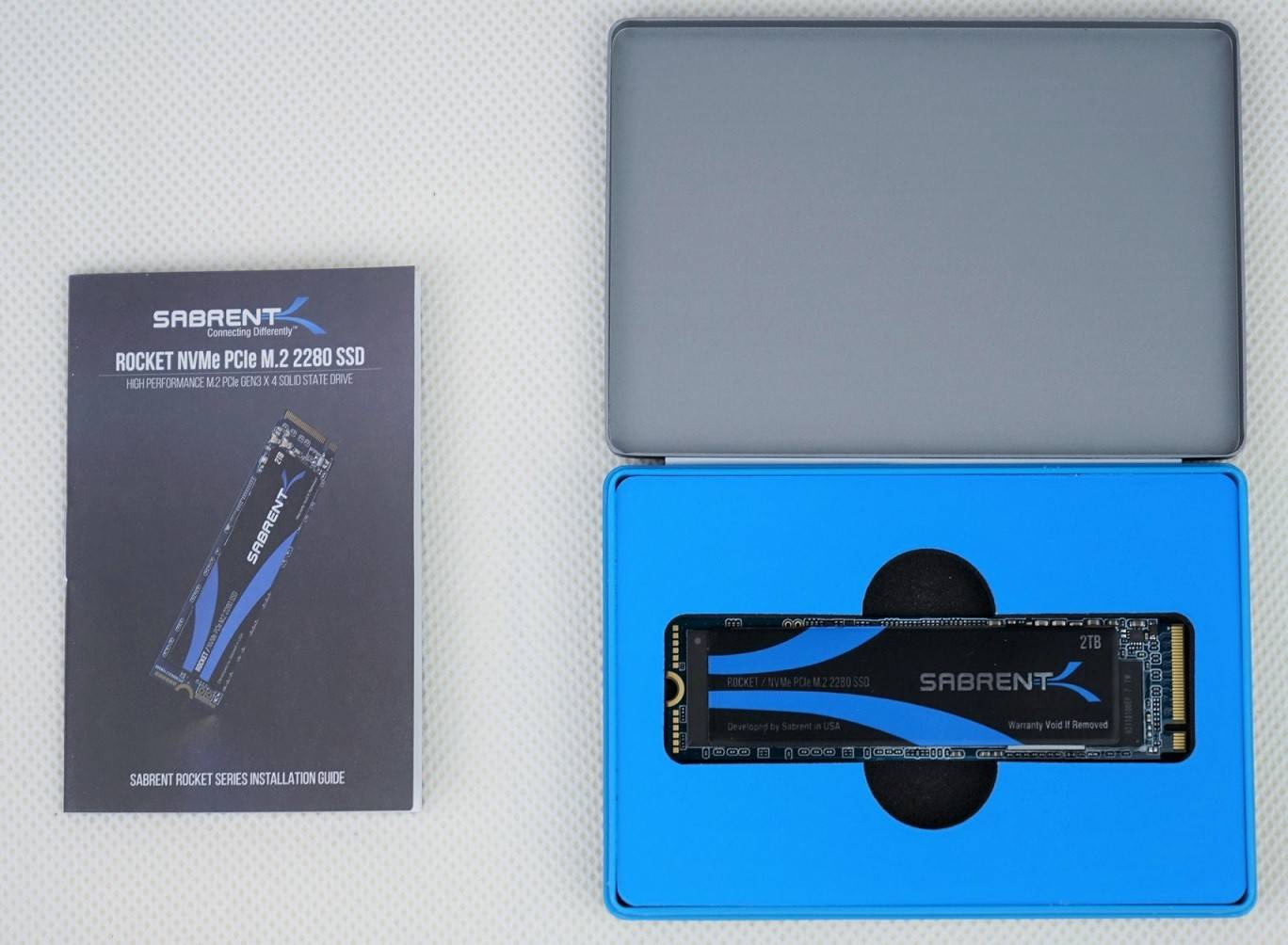
The SSD sits neatly and nicely-protected by the foam insert in the box. There is an installation guide as well. Sabrent also includes a free copy of the Acronis True Image software with the Rocket, which can allow you to easily clone the operating system and backup data.
Sabrent Rocket PCIe NVMe SSD
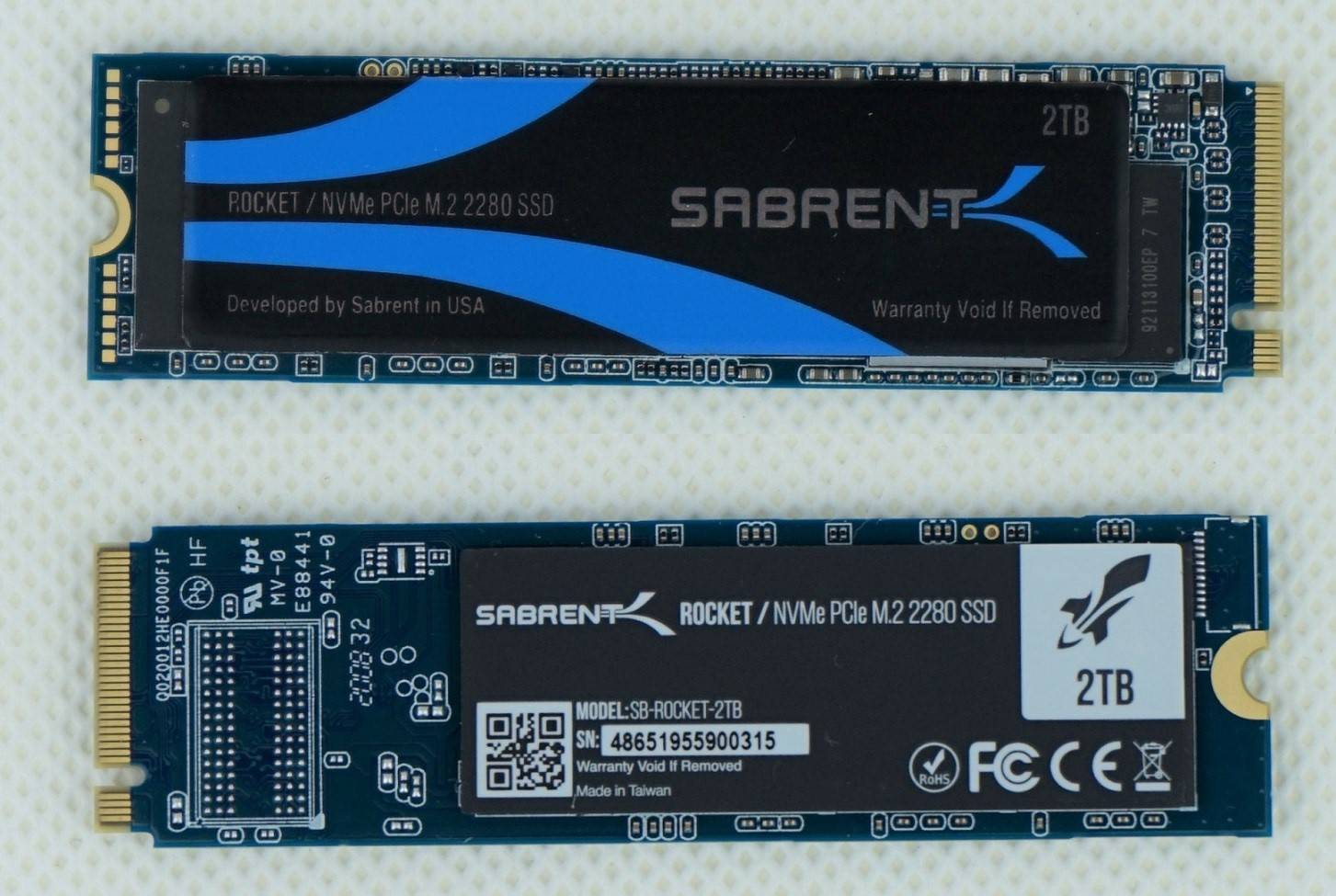
The Rocket is not fitted with a heatsink or external enclosure. Two stickers cover all the components on both sides of the printed circuit board (PCB).
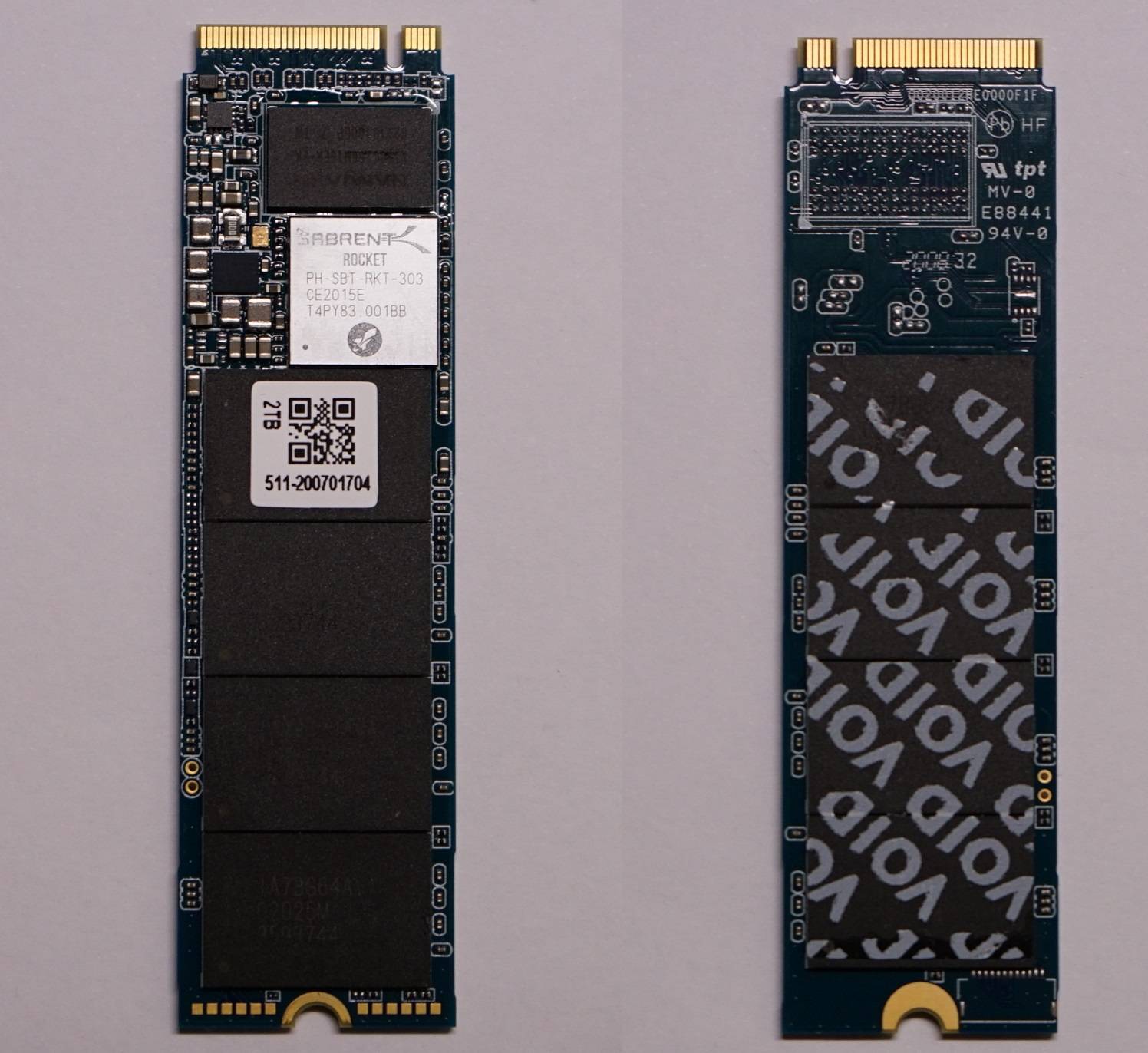
Our particular sample (SB-ROCKET-2TB) is equipped with the custom 8-channel RKT 303 memory controller, which is a rebranded version of the popular Phison PS5012-E12S. It is accompanied by eight 96-Layer B27A 3D TLC NAND flash from Micron (IA7BG64AVA) and a single 4 Gb (512 MB) Nanya-made DDR3L-1866 DRAM cache (NT5CC256M16ER-EK).
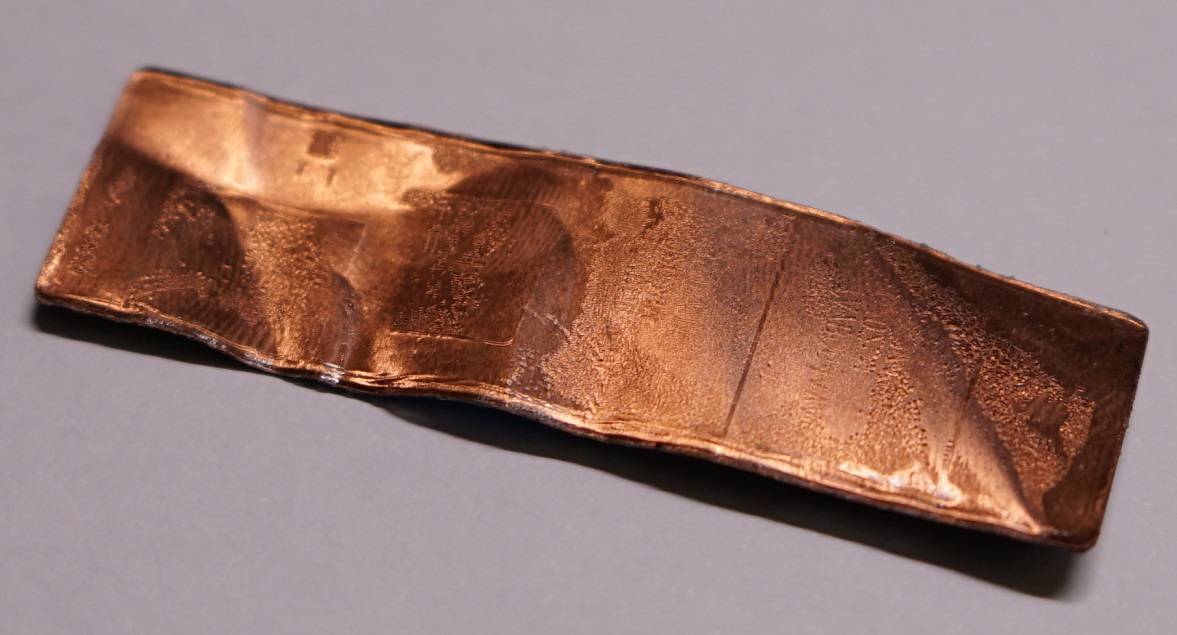
The top sticker of the Rocket is laminated with a thin copper foil underneath, which increases the total heat capacity to prevent thermal throttling in large file transfers.
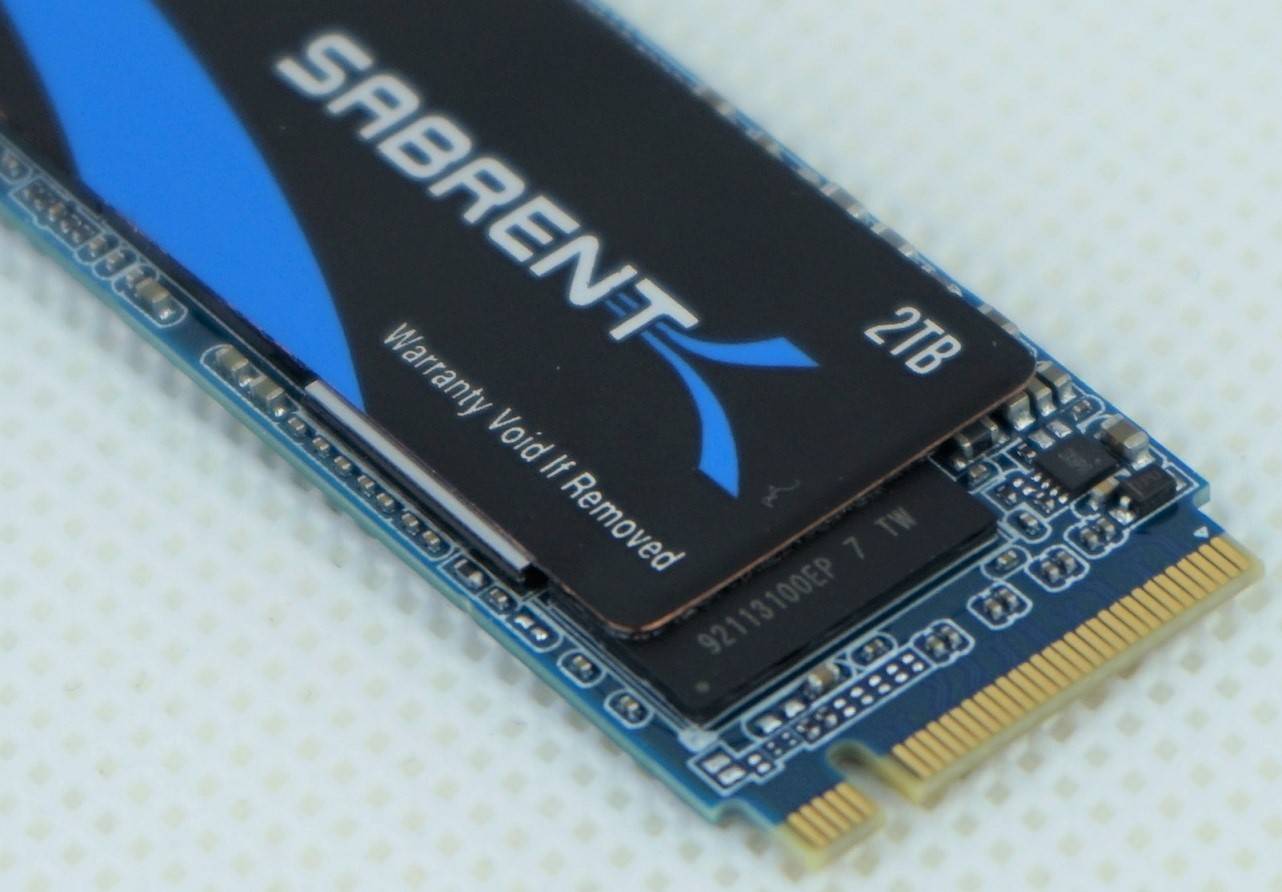
Wired with the PCIe 3.0×4 interface, the SSD is linked to the motherboard via the M.2 connector (M key) and has a theoretical bandwidth of 32 GT/s or 3.94 GB/s.
Review
Testing Methodology
To test the performance of the solid-state drive, we use four well-established storage benchmarking software. They are CrystalDiskMark, ATTO Disk Benchmark, AS SSD Benchmark, as well as HD Tune Pro.
CrystalDiskMark can measure both sequential and random 4KB read/write speeds with a queue depth of 32. ATTO Disk Benchmark can test how the drive performs across different transfer block sizes, mostly in a sequential environment. AS SSD Benchmark can provide both normal read/write speed and the IOPS performance of the drive. HD Tune Pro can be used to simulate a large file transfer of up to 100 GB.
We also recorded the time to copy three files of 10 GB, 500 MB and 250 MB from a RAM disk to the SSD, to simulate a real-world situation.
- CPU: Intel Core i7-9700K @ 4.80 GHz @ 1.30 V (~150W TDP)
- Motherboard: ASRock Z370 Killer SLI
- RAM: HyperX Predator RGB DDR4-3600 16 GB kit (its review here)
Performance
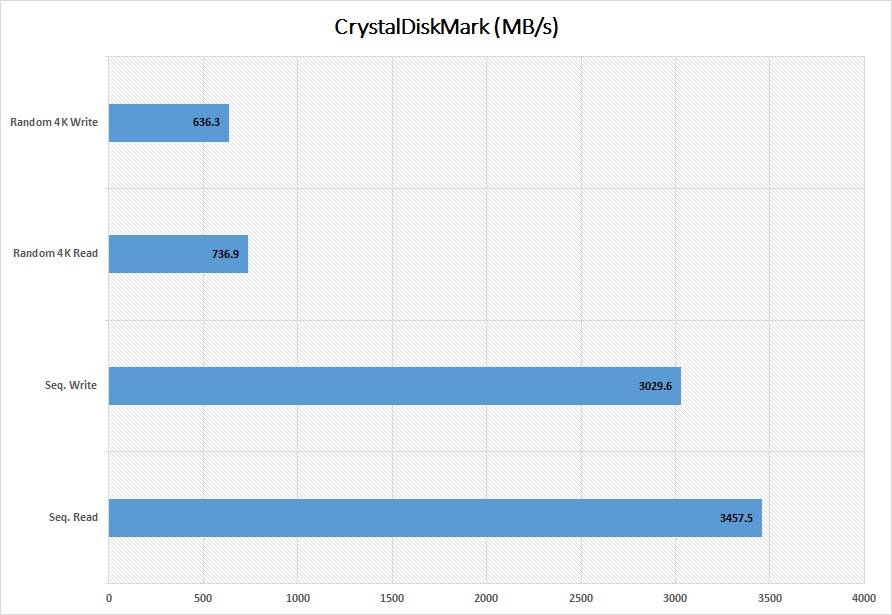
The results in CrystalDiskMark perfectly matched the advertised sequential read/write speeds at about 3460 MB/s and 3030 MB/s. Random 4K performance (QD 32) was also great at 740 MB/s and 640 MB/s respectively. FYI, most SATA-based SSDs often sits at under 300 MB/s.
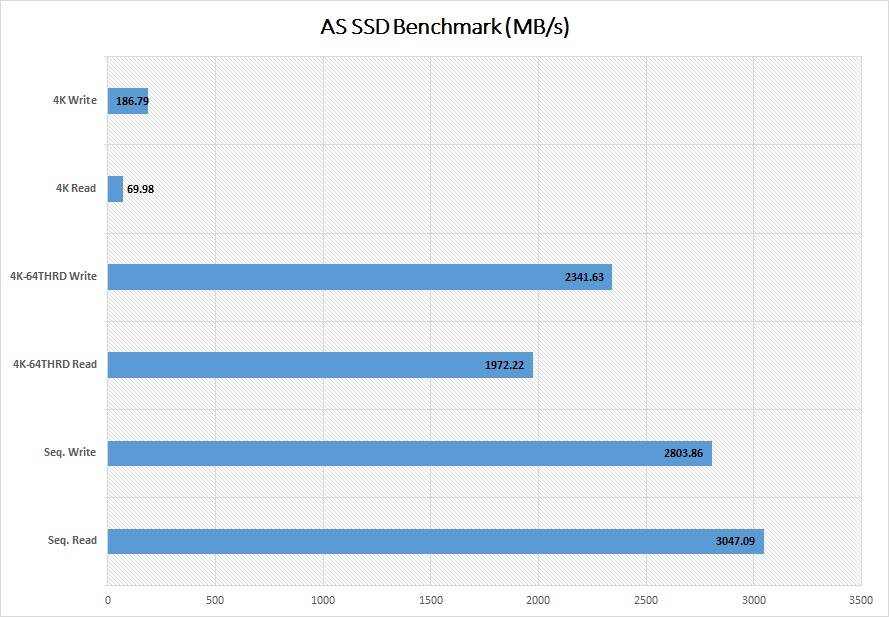
AS SSD Benchmark often shows slower sequential speeds than CDM, which was the case for the Rocket as well. It topped at 3050 MB/s in read and 2800 MB/s in write. Pushing for higher queue depth to 64, the random 4K speeds improved to over 1900 MB/s.
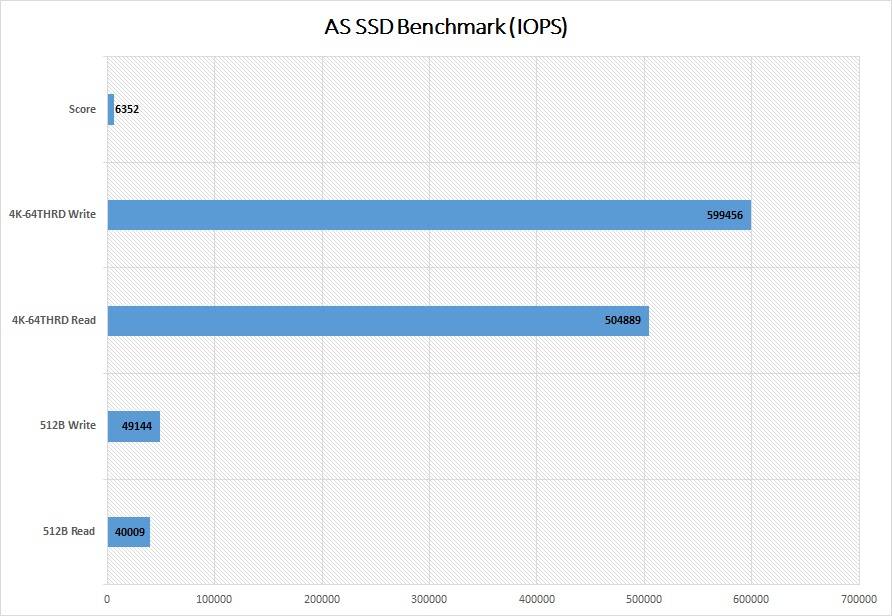
IOPS number represents how well a drive handles random input and output operations. The Rocket scored 6352 in the benchmark, with maximum read/write IOPS at 504889 and 599456.
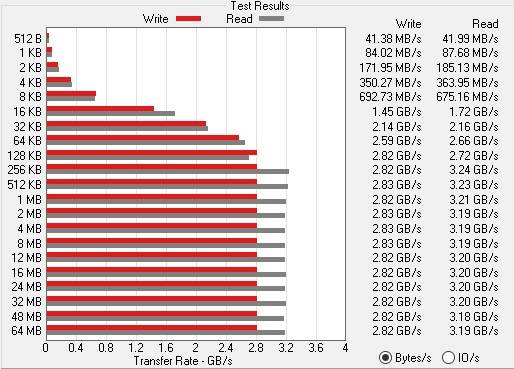
When the test file sizes are raised from 128 KB, read/write speeds in ATTO Disk Benchmark were stabilized at around 3200 MB/s and 2800 MB/s.
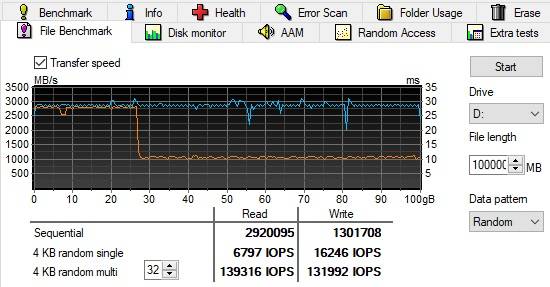
In HD Tune Pro, a 100 GB huge file transfer was simulated. The Rocket was able to maintained at over 2900 MB/s for the first approximately 27 GB of data written. Speed then dropped steeply down to 1000 MB/s, because of the saturated DRAM and SLC cache.
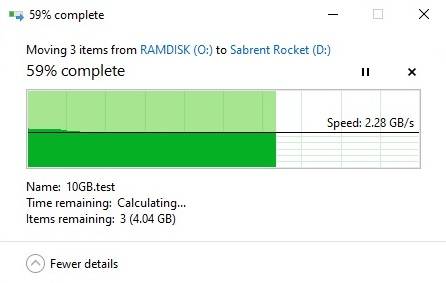
The SSD completed the copy of three files, total sized at 15 GB, after 5.49 seconds. Speed stayed at around 2.3 GB/s. As we saw in HD Tune Pro, the SLC cache of the Rocket (2 TB) is about 30 GB big, the data in this test does not need to write directly to the TLC NAND flash, which will reduce the performance.
Comparison
[visualizer id=”2840″]
[visualizer id=”2842″]
The Sabrent Rocket did really well in our benchmarks, having the fastest sequential and random 4K read/write speeds in AS SSD Benchmark. It was on par with other Phison PS5012-equipped NVMe SSD, like the Silicon Power P34A80. The smaller DRAM cache of the Rocket (512 MB for 2 TB vs 1 GB for 1 TB) does not seem to affect the performance very much.
[visualizer id=”4796″]
Writing large-sized file to the Rocket was still decently quick at around 1300 MB/s. It could not match the Kingston KC2500/KC2000, due to their much larger SLC cache (> 100 GB).
Conclusion

The Sabrent Rocket 3.0 NVMe SSD delivers excellent performance with an already-proven design (Phison PS5012-E12S controller + 3D TLC NAND Flash). It was capable of reaching sequential read/write speeds over 3000 MB/s, which should be more than enough for most tasks from the average consumers. Because of the smaller pseudo-SLC cache (~30 GB), the SSD could not maintain top write speed, during huge file transfer.
The Rocket costs $279.99 USD for 2 TB and $149.99 USD for 1 TB (MSRP) with a 5-year warranty, which is calculated to around $0.14 to $0.15 USD per GB of storage. The price sits in the middle in the market between the budget and premium options. The 2 TB model is considerably cheaper than most brands at the time of this review, such as the Seagate FireCuda 510 at $365.99 USD and Western Digital WD Black SN750 at $309.99 USD. If you want even more storage capacity, the Rocket has a larger 4 TB variant as well.
You can purchase the SSD from your local/online resellers or the links below from Amazon and Newegg.
- Amazon US: Sabrent Rocket PCIe NVMe SSD
- Newegg US: Sabrent Rocket PCIe NVMe SSD
Thanks Sabrent for providing us the SSD for review. (Review Sample)
Feel free to leave comments below, if you have any opinion about this website. Share the website around if you enjoy reading it. Subscribe to our Newsletter or follow our Twitter, Facebook and Instagram.
Support this website simply by shopping in Amazon and Newegg. It will give us small kickbacks, if you use the above affiliate links to make any purchases, which will help us grow.


